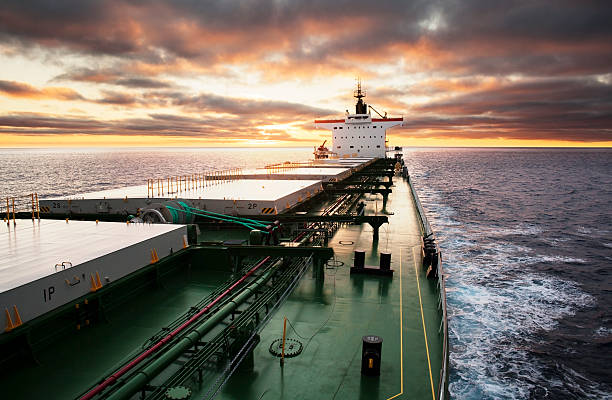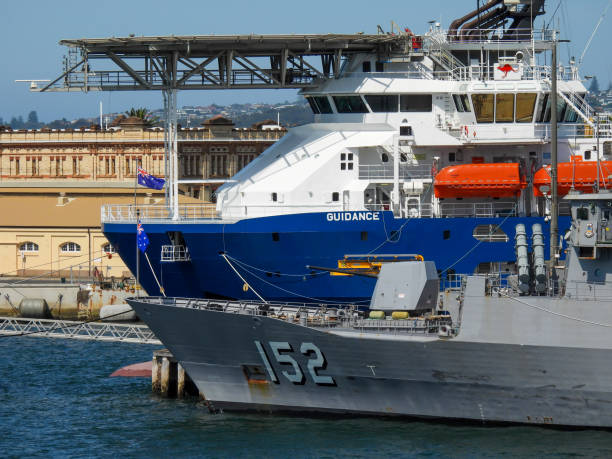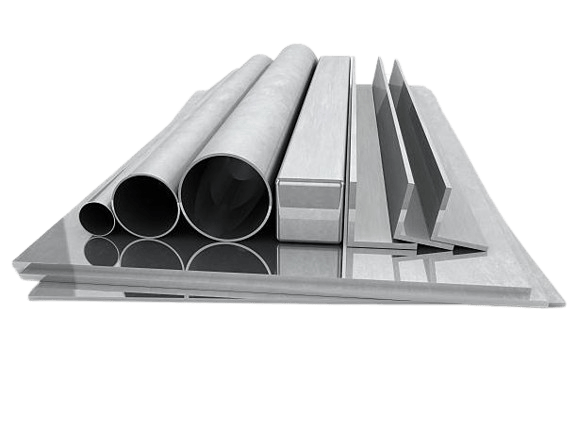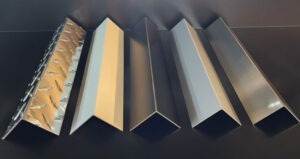
What Is Marine Grade Aluminum?
Marine grade aluminum refers to alloys specifically designed to withstand the corrosive effects of seawater, making them suitable for marine applications. Marine environments pose unique challenges due to the corrosive nature of saltwater and the harsh conditions that vessels and structures are exposed to. To combat these challenges, marine grade aluminum alloys have been developed to provide exceptional corrosion resistance, strength, and durability. These alloys undergo specific treatments and possess specific properties that make them superior choices for use in boats, ships, offshore platforms, and other marine structures.
Best aluminum types for salt water
Grade | Temper | Characteristics | Applications |
5052 | O/H14/H34 | Moderate strength, good anti-corrosion and formability, high fatigue strength | Upper structures, auxiliary structures and boats’ hulls |
5083 | O/H32/H116 | Welding alloy, with the highest strength among non-heat-treated alloys | Structure of hulls, Superstructures, and Offshore structures |
5086 | H116 | Weldability and anti-corrosion are same with 5083 | Marine hulls, Decks and superstructures, Pressure vessels |
5454 | O/H32 | The strength is 22% higher than 5052, Mediocre formability  | Structure of hulls, pipes of pressure vessels, etc. |
5456 | O/H32 | Similar with 5083, but with relatively higher strength and stress corrosion sensitivity | Hull bottom and decks |
5052 Marine Grade Aluminum
5052 aluminum is a popular alloy that is sometimes used in marine applications due to its good corrosion resistance and moderate strength. While it may not be specifically designed as a marine grade aluminum alloy, it can still provide satisfactory performance in certain marine environments. It offers excellent resistance to atmospheric corrosion, making it suitable for applications exposed to salt air and other harsh conditions. It also has good weldability and formability, allowing for ease of fabrication and customization.
In marine applications, 5052 aluminum is commonly used for smaller boats, yacht construction, and non-structural components. It can be found in boat hulls, decks, cabinetry, and other interior or non-load-bearing parts. However, for more demanding marine applications that require higher strength and corrosion resistance, alloys such as 5083 and 5086 are typically preferred.
5083 Marine Grade Aluminum
5083 marine aluminum is widely recognized as a premier marine grade aluminum alloy. It is specifically designed and treated to provide exceptional corrosion resistance, high strength, and excellent weldability, making it highly suitable for marine application.
- Boat Hulls: Due to its combination of corrosion resistance, strength, and formability. It ensures the longevity and structural integrity of the hulls, providing a reliable and safe vessel.
- Shipbuilding: The exceptional properties of 5083 make it a preferred choice for naval and commercial shipbuilding. It offers a balance between weight reduction and structural stability, contributing to the overall performance and efficiency of the ships.
- Offshore Platforms: It can withstand the harsh conditions of saltwater environments, ensuring long-term durability and reliability.
- Marine Components: 5083 aluminum is utilized in various marine components such as propellers, fittings, marine equipment, and hardware. Its strength and corrosion resistance make it suitable for these critical applications.

5086 Marine Grade Aluminum
Alloy 5086 is another popular marine grade aluminum alloy known for its corrosion resistance and strength. It has similar properties to 5083 but with slightly higher tensile strength. Alloy 5086 is often used in applications where high strength and resistance to extreme environments are required, such as boat hulls and marine structures.
5454 Marine Grade Aluminum
5454 marine grade aluminum’s key features include excellent corrosion resistance, high strength, good weldability, formability, and lightweight properties. The strength of 5454 marine grade aluminum is approximately 22% higher than that of 5052 aluminum. This increased strength makes 5454 aluminum more suitable for applications where higher load-bearing capacity is required.
- Boat building: 5454 aluminum is used in the construction of boat hulls, decks, and superstructures.
- Marine components: It is utilized in various marine components such as marine fittings, hardware, and equipment.
- Offshore structures: 5454 aluminum is used in the construction of offshore platforms, oil rigs, and other marine structures.
- Marine transportation: 5454 aluminum is also used in the manufacturing of marine transportation equipment, including ferry boats, yachts, and other recreational watercraft. Its combination of corrosion resistance and strength ensures the reliability and performance of these vessels.
5456 Marine Grade Aluminum
5456 marine grade aluminum is an alloy that shares similarities with 5083 aluminum, but it offers some distinct characteristics.
Higher Strength: 5456 aluminum has relatively higher strength compared to 5083 aluminum. This increased strength makes it well-suited for applications that require enhanced load-bearing capacity and structural integrity in marine environments.
Stress Corrosion Sensitivity: Unlike 5083 aluminum, 5456 aluminum is known to have higher sensitivity to stress corrosion cracking. Stress corrosion cracking occurs when a material is exposed to a combination of tensile stress and a corrosive environment. Therefore, precautions need to be taken to prevent stress corrosion in marine applications using 5456 aluminum.
6061 Aluminum
Although not a dedicated marine grade alloy, 6061 aluminum is sometimes used in certain marine applications. It offers good corrosion resistance, excellent weldability, and moderate strength. It is commonly used for marine fittings, hardware, and components.
The advantages of Marine grade aluminum
Marine aluminum alloys offer significant advantages for marine applications. Their exceptional corrosion resistance ensures durability in harsh marine environments. With an excellent strength-to-weight ratio, these alloys provide structural integrity without adding excessive weight. They are highly weldable and formable, allowing for easy fabrication and customization. The lightweight nature of marine aluminum alloys contributes to improved fuel efficiency and increased payload capacity. Additionally, their resistance to low temperatures and recyclability align with environmental sustainability goals. Overall, marine aluminum alloys provide a compelling combination of corrosion resistance, strength, weldability, formability, and lightweight properties, making them a preferred choice in the marine industry.







